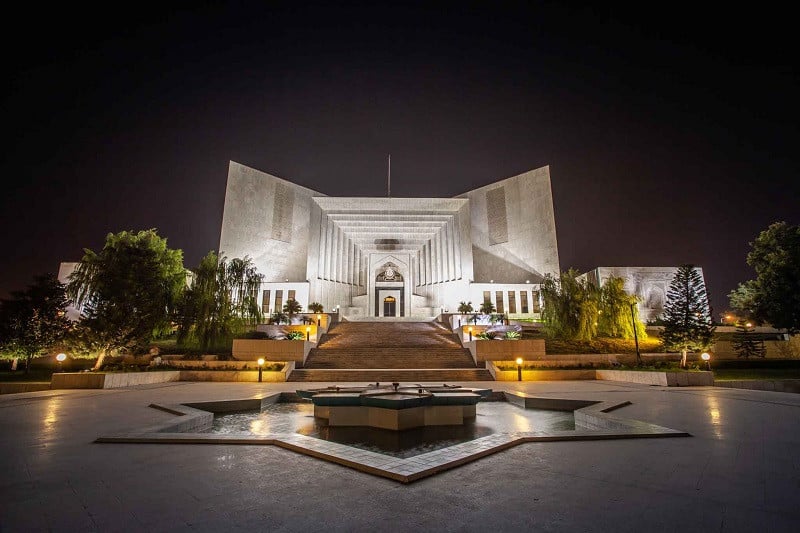Supreme Court
A group of prominent lawyers, including Abid Zuberi, Shafqat Mehmood, and Munir Kakar, has filed a petition in the Supreme Court of Pakistan, challenging a set of proposed constitutional amendments.
These amendments, which are part of the 26th Constitutional Amendment, have sparked significant controversy, particularly concerning their potential impact on the judiciary.
The petition names the federal government, the four provincial governments, the National Assembly, the Senate, and other relevant entities as respondents.
The petitioners argue that the proposed amendments undermine the separation of powers and threaten the independence of the judiciary.
According to the petition, these amendments could result in executive overreach into judicial affairs, a move that they believe is unconstitutional.
The lawyers have requested the Supreme Court to declare the draft amendment unconstitutional and prevent the government from moving forward with its implementation.
The petition further calls for an immediate halt to the process of presenting the amendment bill in parliament. Should the government continue with the process, the petitioners have also requested that the president of Pakistan be barred from signing the bill into law.
They emphasize the importance of safeguarding judicial independence, maintaining the judiciary’s powers and jurisdiction, and argue that parliament lacks the authority to withdraw or limit judicial powers.
The government’s efforts to introduce the 26th Constitutional Amendment have already faced setbacks, starting with the postponement of a federal cabinet meeting where the amendments were supposed to be approved.
Additionally, the sessions of both the National Assembly and the Senate, which were convened specifically to table the bill, were adjourned indefinitely.
One of the major reasons for this delay has been the government’s inability to secure the support of Maulana Fazlur Rehman, chief of Jamiat Ulema-e-Islam-Fazl (JUI-F).
Without his backing, the government failed to table the amendment bill in the parliamentary sessions held earlier today. Due to this setback, regular proceedings continued in the National Assembly, where a three-point agenda was scheduled for discussion.
The ruling coalition parties, Pakistan Muslim League-Nawaz (PML-N) and Pakistan People’s Party (PPP), had directed their members to be present for the sessions in the hopes of securing enough votes to move the amendments forward.
However, despite these efforts, the government continues to struggle to gather sufficient support in parliament to pass the judiciary-focused amendments.
This development marks yet another challenge for the government in its attempt to push forward with these constitutional changes, which have been met with growing opposition both within the legal community and among political groups.
The petition filed in the Supreme Court adds a legal dimension to the ongoing debate over the future of Pakistan’s judiciary and the separation of powers.


